August 22 stands as one of history’s most eventful days, witnessing the rise and fall of empires, groundbreaking discoveries, and moments that shaped our modern world across centuries of human achievement.

Politics and Government Events on August 22
1902 – Theodore Roosevelt Makes Presidential Automobile Debut

President Theodore Roosevelt became the first American president to make a public appearance in an automobile on this historic date. The bold demonstration showcased the president’s embrace of modern technology and progress.
Roosevelt’s automotive appearance symbolized America’s transition into the industrial age. His willingness to adopt new transportation methods reflected the nation’s growing confidence in technological innovation.
1942 – Brazil Declares War on Axis Powers
Brazil formally declared war on Germany, Japan, and Italy, joining the Allied forces in World War II. President Getúlio Vargas made this decisive commitment after German submarines attacked Brazilian vessels.
The declaration brought South America’s largest nation fully into the global conflict. Brazil’s entry provided crucial resources and strategic positioning for Allied operations in the Atlantic.
1962 – Assassination Attempt on Charles de Gaulle
The Organisation armée secrète (OAS) launched a dramatic assassination attempt against French President Charles de Gaulle. The attack occurred as de Gaulle’s motorcade traveled through the Parisian suburb of Petit-Clamart.
Machine gun fire riddled the presidential vehicle, but de Gaulle escaped unharmed. The failed assassination attempt demonstrated the violent opposition to his Algerian independence policies.
1973 – Chilean Congress Condemns Allende Government
The Chilean Congress voted to condemn President Salvador Allende’s government and demanded his resignation or removal through force. The resolution accused Allende of violating the constitution and destroying democratic institutions.
This parliamentary action provided political justification for military intervention. The vote foreshadowed the military coup that would topple Allende’s government just weeks later.
1991 – Iceland Recognizes Baltic Independence
Iceland became the first nation worldwide to officially recognize the independence of Estonia, Latvia, and Lithuania. This bold diplomatic move occurred during the final collapse of the Soviet Union.
Iceland’s recognition provided crucial international legitimacy for the Baltic states’ independence declarations. The decision encouraged other nations to follow suit in supporting Baltic sovereignty.
2003 – Alabama Chief Justice Suspended Over Ten Commandments
Alabama Chief Justice Roy Moore was suspended from office after refusing to remove a Ten Commandments monument from the state courthouse. Federal courts had ordered the removal, citing separation of church and state.
Moore’s defiance sparked a national debate about religious displays in government buildings. The controversy highlighted ongoing tensions between religious expression and constitutional law.
Military and Naval History on August 22
1922 – Michael Collins Killed in Irish Civil War

Michael Collins, Commander-in-chief of the Irish Free State Army, was shot dead in an ambush at Béal na Bláth, County Cork. The assassination occurred during active fighting in the Irish Civil War.
Collins had been instrumental in securing Irish independence from Britain through guerrilla warfare tactics. His death at age 31 deprived Ireland of one of its most effective military and political leaders.
1944 – Holocaust of Kedros in Crete
German forces perpetrated the Holocaust of Kedros, a brutal massacre of civilians in Crete during World War II. The atrocity formed part of Germany’s harsh reprisal policies against Cretan resistance activities.
The massacre demonstrated the extreme measures Nazi forces employed to suppress partisan warfare. Local communities paid devastating prices for supporting Allied operations and resistance movements.
1978 – Sandinistas Seize Nicaraguan National Congress
The Sandinista National Liberation Front (FSLN) captured Nicaragua’s National Congress building along with over a thousand hostages. This daring raid marked a crucial escalation in the revolutionary war against the Somoza regime.
The hostage crisis gained international attention and demonstrated the rebels’ growing capabilities. The operation helped accelerate the eventual overthrow of the Somoza dictatorship.
1992 – FBI Sniper Kills Vicki Weaver at Ruby Ridge
FBI sniper Lon Horiuchi shot and killed Vicki Weaver during the Ruby Ridge siege in Idaho. The shooting occurred on the second day of an eleven-day standoff between federal agents and the Weaver family.
The incident sparked widespread controversy about federal law enforcement tactics. Ruby Ridge became a rallying point for militia movements and critics of government overreach.
Science and Discovery Milestones on August 22
1963 – X-15 Reaches Record Altitude
The X-15 rocket plane achieved its highest altitude during Flight 91, reaching 107.96 kilometers above Earth. Test pilot Joe Walker piloted the experimental aircraft to the edge of space.
This flight demonstrated the feasibility of rocket-powered atmospheric flight. The X-15 program provided crucial data for future spacecraft design and astronaut training procedures.
2006 – Mathematician Refuses Fields Medal

Grigori Perelman was awarded the Fields Medal for proving the Poincaré conjecture but refused to accept the prestigious honor. His proof resolved one of mathematics’ most challenging problems after decades of attempts.
Perelman’s refusal shocked the mathematical community and highlighted his rejection of academic recognition. The Poincaré conjecture proof represented a monumental achievement in topology and geometric analysis.
1902 – Kashgar Earthquake Devastates Central Asia

A magnitude 7.7 earthquake struck the Kashgar region in the Tien Shan mountains, killing at least 6,000 people. The powerful tremor caused widespread destruction across the remote Central Asian region.
The earthquake demonstrated the seismic instability of the Tien Shan mountain range. Limited communication systems delayed accurate casualty reports from the affected areas.
1949 – Queen Charlotte Earthquake Rocks Canada

The Queen Charlotte earthquake became Canada’s most powerful seismic event since the 1700 Cascadia earthquake. The massive tremor struck off the coast of British Columbia with devastating force.
The earthquake highlighted the Pacific Northwest’s vulnerability to major seismic events. Geological studies of the event advanced understanding of regional tectonic activity.
Cultural and Arts Events on August 22
2004 – Edvard Munch Paintings Stolen in Oslo

Armed robbers stole two iconic paintings by Edvard Munch, “The Scream” and “Madonna,” from the Munch Museum in Oslo. The brazen daylight theft shocked the international art world.
The thieves executed their plan in broad daylight with museum visitors present. The stolen masterpieces represented some of Norway’s most treasured cultural artifacts.
1953 – Devil’s Island Penal Colony Permanently Closed
France permanently closed the notorious Devil’s Island penal colony off the coast of French Guiana. The facility had housed political prisoners and criminals under harsh tropical conditions for decades.
The closure marked the end of one of history’s most infamous prison systems. Devil’s Island had gained notoriety through the wrongful imprisonment of Captain Alfred Dreyfus.
1968 – Pope Paul VI Visits Colombia

Pope Paul VI arrived in Bogotá, Colombia, marking the first papal visit to Latin America in history. The historic trip demonstrated the Catholic Church’s growing attention to developing nations.
Massive crowds welcomed the pontiff throughout his Colombian tour. The visit highlighted the Church’s commitment to social justice and poverty alleviation in Latin America.
1985 – Manchester Airport Fire Kills 55

British Airtours Flight 28M suffered a catastrophic engine fire during takeoff at Manchester Airport. Despite the pilots’ successful abort, inefficient evacuation procedures resulted in 55 deaths from smoke inhalation.
The disaster led to significant improvements in aircraft evacuation procedures worldwide. New safety protocols prioritized rapid passenger evacuation during ground emergencies.
Religious and Social Events on August 22
1965 – United Farm Workers Union Formed

The National Farm Workers Association (NFWA) and Agricultural Workers Organizing Committee (AWOC) merged to create the United Farm Workers Organizing Committee. This union became the predecessor to the influential United Farm Workers union.
The merger united Mexican-American and Filipino agricultural workers under common leadership. The new organization would champion workers’ rights and improve conditions for migrant laborers.
1971 – Camden 28 Activists Arrested
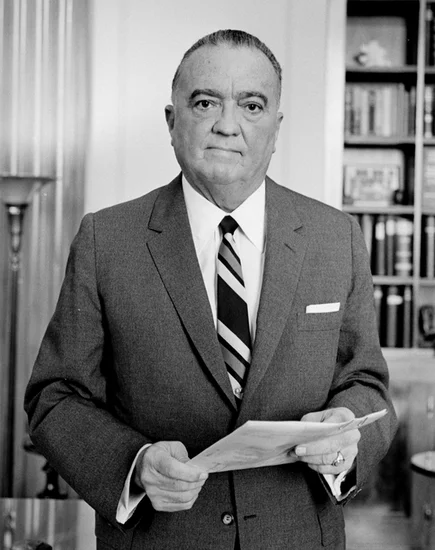
FBI Director J. Edgar Hoover and Attorney General John Mitchell announced the arrest of 20 members of the Camden 28 peace activists. The group had planned to raid a draft board office to protest the Vietnam War.
The arrests highlighted the government’s intensive surveillance of anti-war movements. The Camden 28 case became a symbol of civil disobedience against the Vietnam conflict.
1978 – DC Voting Rights Amendment Passes Congress
The United States Congress passed the District of Columbia Voting Rights Amendment, granting the capital city full congressional representation. However, insufficient states ratified the amendment within the required timeframe.
The amendment would have treated DC as a state for congressional representation purposes. Despite congressional approval, the measure failed to achieve the necessary state ratifications.
2012 – Ethnic Violence Erupts in Kenya
Ethnic clashes over cattle grazing rights in Kenya’s Tana River District resulted in more than 52 deaths. The violence reflected ongoing tensions between farming and pastoral communities.
Competition for water and grazing land fueled the deadly confrontations. The clashes highlighted Kenya’s persistent challenges in managing ethnic and resource conflicts.
Business and Economic Events on August 22
1902 – Cadillac Motor Company Founded
The Cadillac Motor Company was officially established, destined to become one of America’s premier luxury automobile manufacturers. The company emerged during the early years of the automotive industry’s rapid expansion.
Cadillac would pioneer numerous automotive innovations including the electric starter and synchronized transmission. The brand established itself as a symbol of American automotive luxury and engineering excellence.
1972 – Rhodesia Expelled from Olympics
The International Olympic Committee expelled Rhodesia from Olympic competition due to its racist apartheid policies. The decision reflected growing international pressure against the white-minority government.
The expulsion demonstrated the IOC’s willingness to exclude nations based on discriminatory practices. Rhodesia’s ban remained in effect until the country achieved majority rule as Zimbabwe.
1985 – Aviation Safety Improved After Disasters

The British Airtours Flight 28M disaster at Manchester Airport led to comprehensive reviews of aviation safety procedures. The tragedy prompted airlines worldwide to reassess emergency evacuation protocols.
New regulations mandated improved cabin materials and faster evacuation procedures. The aviation industry implemented these changes to prevent similar disasters in the future.
1999 – China Airlines Flight 642 Crashes
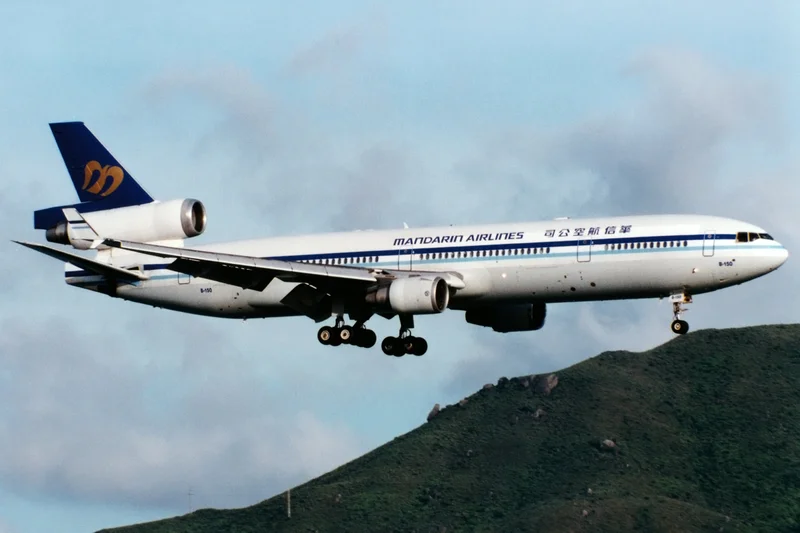
China Airlines Flight 642 crashed during landing at Hong Kong International Airport, killing three people and injuring 208 others. The accident occurred during challenging weather conditions.
The crash highlighted ongoing safety concerns in Asian aviation markets. Investigation findings led to improved pilot training and landing procedures for adverse weather conditions.
Transportation and Infrastructure on August 22
1981 – Far Eastern Air Transport Flight 103 Disaster

Far Eastern Air Transport Flight 103 disintegrated in mid-air before crashing in Taiwan’s Miaoli County. All 110 people aboard the Boeing 737 perished in the catastrophic accident.
The disaster shocked Taiwan’s aviation industry and prompted comprehensive safety reviews. Investigators determined that structural failure caused the aircraft’s in-flight breakup.
2006 – Pulkovo Aviation Flight 612 Crashes

Pulkovo Aviation Enterprise Flight 612 crashed near the Russian border over eastern Ukraine, killing all 170 people on board. The Tupolev Tu-154M aircraft was en route from Anapa to St. Petersburg.
The crash marked one of the deadliest aviation disasters in Russian history. Weather conditions and possible mechanical failure contributed to the tragic accident.
1985 – Manchester Airport Emergency Response

Manchester Airport’s emergency response to the British Airtours Flight 28M fire exposed critical weaknesses in disaster preparedness. The incident prompted airports worldwide to upgrade emergency procedures.
New protocols emphasized rapid fire suppression and passenger evacuation coordination. Airport authorities implemented these improvements to enhance passenger safety during ground emergencies.
Sports and Recreation on August 22
1934 – Bill Woodfull Regains The Ashes

Australian cricket captain Bill Woodfull became the only test cricket captain to twice regain The Ashes from England. His leadership secured Australia’s victory in the prestigious cricket series.
Woodfull’s achievement demonstrated his exceptional captaincy skills and tactical acumen. The Ashes victory restored Australian cricket pride after previous defeats to England.
1965 – Baseball Brawl at Candlestick Park
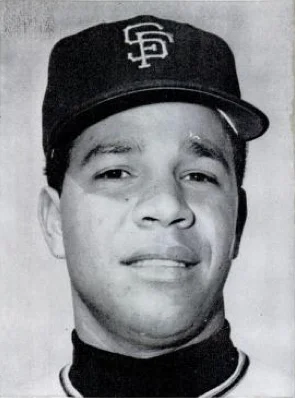
San Francisco Giants pitcher Juan Marichal struck Los Angeles Dodgers catcher John Roseboro on the head with a bat, sparking a 14-minute brawl. The incident became one of baseball’s most violent on-field confrontations.
The altercation shocked baseball fans and led to significant disciplinary action. Marichal received a suspension and fine for his assault on Roseboro.
1989 – Nolan Ryan Reaches 5,000 Strikeouts

Texas Rangers pitcher Nolan Ryan struck out Rickey Henderson to become the first Major League Baseball pitcher to record 5,000 career strikeouts. The milestone occurred during a game against the Oakland Athletics.
Ryan’s achievement cemented his status as one of baseball’s greatest power pitchers. The strikeout record stood as testament to his exceptional longevity and dominance.
2007 – Texas Rangers Score 30 Runs
The Texas Rangers defeated the Baltimore Orioles 30-3, scoring the most runs by a team in modern Major League Baseball history. The offensive explosion shattered numerous scoring records.
The Rangers’ historic performance demonstrated the unpredictable nature of baseball. The lopsided victory became an instant classic among baseball’s most memorable games.
Notable Births on August 22
1904 – Deng Xiaoping, Chinese Revolutionary Leader

Deng Xiaoping was born in Sichuan Province, China, destined to become one of the most influential leaders in modern Chinese history. His early life was marked by poverty and political upheaval.
Deng would later implement market reforms that transformed China into an economic powerhouse. His pragmatic approach to governance earned him recognition as China’s paramount leader.
1920 – Ray Bradbury, Science Fiction Master

Ray Bradbury entered the world in Waukegan, Illinois, beginning a life that would revolutionize science fiction literature. His childhood fascination with fantasy and horror stories shaped his creative imagination.
Bradbury would author classics including “Fahrenheit 451” and “The Martian Chronicles.” His visionary works explored themes of technology, censorship, and human nature.
1908 – Henri Cartier-Bresson, Photography Pioneer

Henri Cartier-Bresson was born in Chanteloup-en-Brie, France, later becoming the father of modern photojournalism. His early artistic training influenced his revolutionary approach to photography.
Cartier-Bresson developed the concept of the “decisive moment” in photography. His work captured the essence of human experience through perfectly timed compositions.
1938 – Norman Schwarzkopf Jr., Military Commander

Norman Schwarzkopf Jr. was born in Trenton, New Jersey, beginning a distinguished military career. His father’s army service inspired his own dedication to military excellence.
Schwarzkopf would later command Allied forces during the Gulf War with remarkable success. His leadership during Operation Desert Storm made him a household name.
1920 – Denton Cooley, Heart Surgery Pioneer

Denton Cooley was born in Houston, Texas, destined to become a groundbreaking cardiovascular surgeon. His early interest in medicine led to revolutionary contributions to heart surgery.
Cooley performed the first successful heart transplant in the United States. His surgical innovations saved countless lives and advanced cardiac medicine.
1946 – Carl Yastrzemski, Baseball Hall of Famer
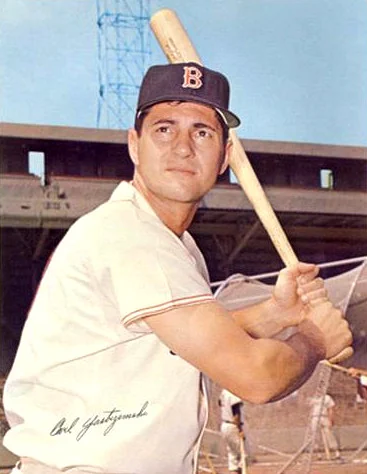
Carl Yastrzemski was born in Southampton, New York, beginning a legendary baseball career. His Polish-American heritage influenced his strong work ethic and determination.
Yastrzemski would become the last player to win the Triple Crown in Major League Baseball. His remarkable 1967 season helped the Boston Red Sox reach the World Series.
1954 – Dua Lipa, Contemporary Pop Star

Dua Lipa was born in London, England, to Albanian parents who had immigrated to the United Kingdom. Her multicultural background would later influence her international appeal.
Lipa would emerge as one of the most successful pop artists of the 2010s. Her distinctive voice and dance-pop style earned her multiple Grammy Awards.
Notable Deaths on August 22
1922 – Michael Collins, Irish Revolutionary
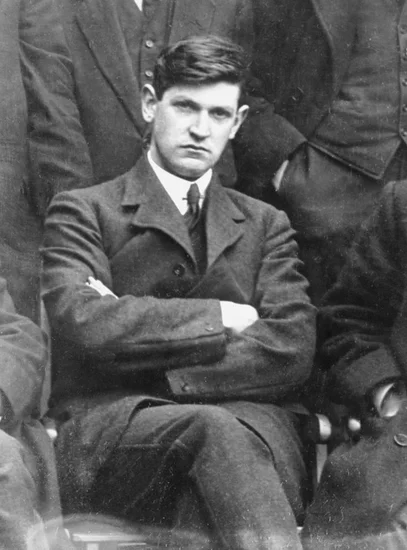
Michael Collins, the charismatic leader of the Irish independence movement, died in an ambush during the Irish Civil War. His death at age 31 shocked the newly formed Irish Free State.
Collins had been instrumental in securing independence from Britain through guerrilla warfare tactics. His assassination deprived Ireland of its most effective military and political strategist.
1903 – Robert Gascoyne-Cecil, British Prime Minister

Robert Gascoyne-Cecil, 3rd Marquess of Salisbury, died after serving as one of Britain’s most influential Conservative Prime Ministers. His lengthy political career spanned the height of the British Empire.
Salisbury had guided Britain through critical periods including the Boer War and European diplomatic crises. His death marked the end of an era in British imperial politics.
1904 – Kate Chopin, American Novelist
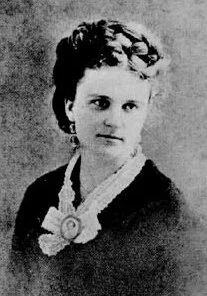
Kate Chopin, the pioneering American author, died in St. Louis, Missouri, at age 54. Her groundbreaking novel “The Awakening” had challenged Victorian social conventions.
Chopin’s feminist themes and frank treatment of sexuality scandalized contemporary readers. Her work gained recognition as a masterpiece of American literature only decades after her death.
1978 – Jomo Kenyatta, Kenyan President
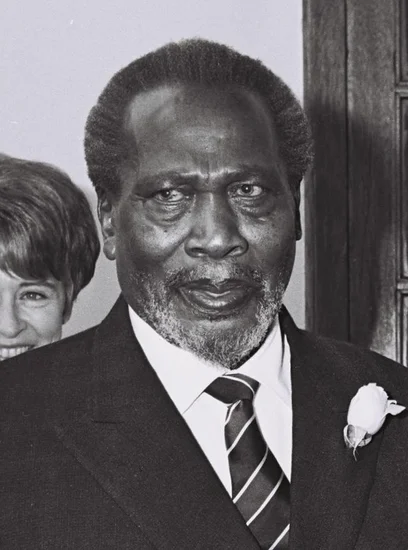
Jomo Kenyatta, Kenya’s first President and father of independence, died in Mombasa at age 84. His death marked the end of an era for the young African nation.
Kenyatta had led Kenya’s struggle for independence from British colonial rule. His presidency established Kenya as one of Africa’s most stable and prosperous nations.
1976 – Juscelino Kubitschek, Brazilian President

Juscelino Kubitschek, Brazil’s visionary former President, died in an automobile accident near Resende, Rio de Janeiro. His death ended the life of one of Brazil’s most transformative leaders.
Kubitschek had built the new capital city of Brasília during his presidency. His ambitious development programs modernized Brazil and accelerated economic growth.
1989 – Huey P. Newton, Black Panther Co-founder
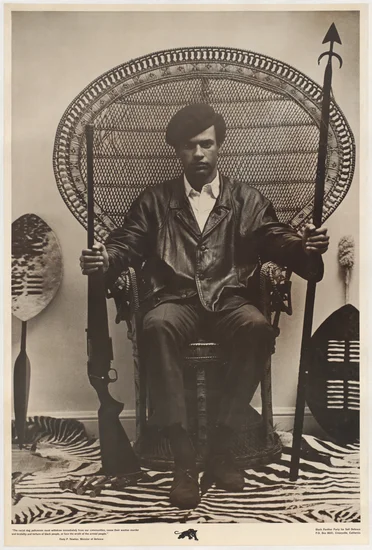
Huey P. Newton, co-founder of the Black Panther Party, was shot and killed in Oakland, California. His death ended the life of one of America’s most controversial civil rights activists.
Newton had helped establish the Black Panthers as a powerful force for African American empowerment. His revolutionary ideology influenced civil rights movements worldwide.
2011 – Jack Layton, Canadian Political Leader
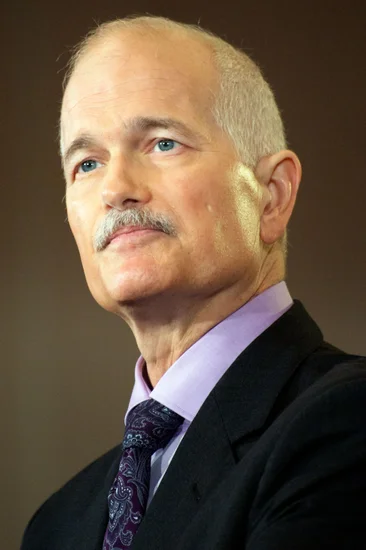
Jack Layton, leader of Canada’s New Democratic Party, died of cancer at age 61. His death occurred just months after leading the NDP to its greatest electoral success.
Layton had transformed the NDP into Canada’s official opposition party. His charismatic leadership and progressive vision inspired a new generation of Canadian politicians.
Holidays and Observances on August 22
International Day Commemorating Victims of Religious Violence
The United Nations established this day to remember victims of violence based on religion or belief. The observance promotes religious tolerance and peaceful coexistence among different faiths.
The day encourages reflection on the importance of protecting religious freedom worldwide. Communities use this observance to build bridges between different religious traditions.
Flag Day in Russia
Russia celebrates Flag Day to honor the white, blue, and red tricolor flag adopted after the Soviet Union’s collapse. The holiday commemorates the restoration of the traditional Russian flag.
The celebration includes patriotic displays and ceremonies throughout the country. Flag Day represents Russia’s connection to its pre-Soviet historical identity and traditions.
Madras Day in Chennai and Tamil Nadu
Chennai and Tamil Nadu celebrate Madras Day to commemorate the founding of the historic city of Madras (now Chennai). The observance honors the city’s rich cultural heritage and history.
The celebration includes cultural programs showcasing Tamil literature, music, and traditions. Madras Day strengthens connections between past and present in India’s southeastern region.
